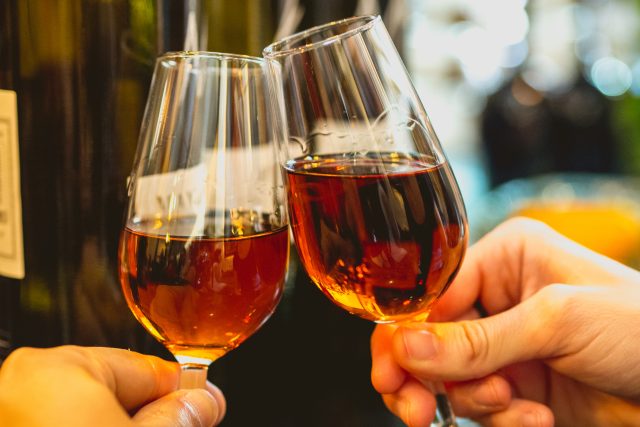This website uses cookies so that we can provide you with the best user experience possible. Cookie information is stored in your browser and performs functions such as recognising you when you return to our website and helping our team to understand which sections of the website you find most interesting and useful.
Sherry on top: Can Spain’s fortified wine make it big in China?
Fortified wines make up a tiny piece of the pie that is the Chinese wine market, but with more focus on the Sherry category from the likes of ASC Fine Wines, its slice is about to get bigger.

The Fortified wine market in China is projected to generate a revenue of £10.3m (93.6m Chinese Yuan) in 2024, compared to the £8.1 billion generated by the overall wine category, according to Statista.
As such, fortified wine plays a very small role in the country’s wine sales. Even smaller is that of Sherry, the fortified wine made in the Spanish region Jerez.
“The wine market in China predominantly favours still wines,” says Matthew Gong, general communications & corporate affairs director for ASC Fine Wines. “Sherry, being a fortified wine, is not as widely recognised among most wine consumers. Only a select few top wine importers, such as ASC and specialised Sherry importers, introduce and sell Sherry in China.”
Chinese importer and distributor ASC recently unveiled a collaboration with Lustau Sherry and photography company Canon to educate consumers on Sherry through a Lustau Sherry and Photography Workshop, held on 16 December in Shanghai in partnership with Club Canon.
ASC Fine Wines, committed to introducing Sherry and its culture to Chinese consumers, organised the workshop as part of its proactive strategy to promote Sherry. “The category requires time to build awareness and recognition among Chinese consumers,” Gong explained, and the workshop provides ASC with an avenue to do so.
Approximately 40 Club Canon members participated in the immersive workshop, exploring the history, unique characteristics, and the dynamic solera ageing system of Sherry.
ASC also conducts regular training about Sherry for its staff as part of the company’s commitment to pushing the category, and not for nothing.
“I see significant potential for the growth of Sherry in China,” says Gong, but he’s aware that this “necessitates active efforts from both Sherry producers and importers to promote it as a quality wine category and an excellent choice for cocktails”.
The collaboration with Canon for workshops aims to promote Sherry by integrating Spanish culture, tourism, and Sherry tastings for Canon club members “who appreciate the finer aspects of life”, he says. ASC has seen positive results so far, with “substantial development” of its Sherry business over the past few years, even during Covid-19.
All the ingredients
Sherry has all the ingredients, so to speak, to have great success in the Chinese market. The fortified wine offers a diverse range of tastes, spanning from the extremely sweet PX Sherry to the exceedingly dry Fino Sherry. The biologically aged Fino, the oxidatively aged Oloroso and semi-oxidative Amontillado Palo Cortado also provide a spectrum of flavours in terms of oxidativeness.
In particular, the more oxidative styles should resonate with consumers in East China – Gong likens these Sherries to Yellow Rice Wine, “a similarly oxidative wine with styles of very sweet to very dry as well”.
To bring millennial and Gen Z consumers on-board the Sherry train and “boost Sherry consumption in the future”, cocktails are will be key to cracking the Chinese market.

